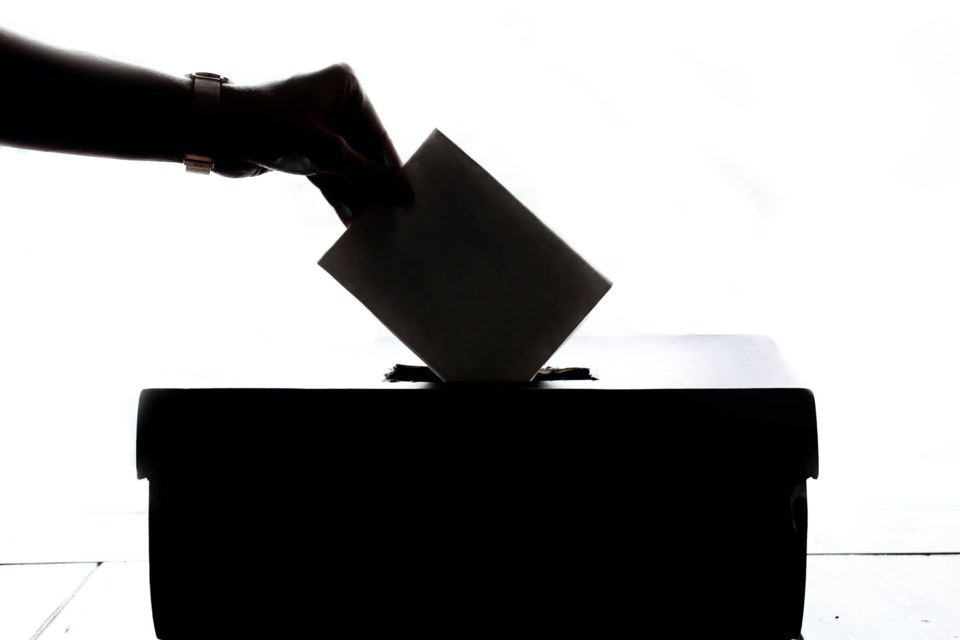Wednesday’s vote to maintain a two-member-per-ward, six-ward structure was unsurprising. Disappointing, but unsurprising.
Front and centre in the decision was the delusion that this system creates more access, less incumbency and more diversity of thought. The irony seemed lost on this council considering all but two of them where on council last term, and some have been there a lot longer than that.
The topic of next year’s election will be at hand during Monday’s meeting too, but the conversation will specifically focus on access and how some people in our community are still struggling to get it.
Let’s rewind. In February, council passed a mail-in option to supplement in-person voting in 2022. Theoretically, this motion created more convenience and access while assuaging fears about security raised by the prospect of online voting. What you may not have known is that this assumption is a kind of ableism.
For that reason, the Accessibility Advisory Committee (AAC) had to develop their own proposal. For people who are visually impaired, have a cognitive condition, or might have difficulty even just holding a pen, mail-in voting still forces dependence on some community members with a disability because it makes them need someone else’s help to vote.
In case this needs to be spelled out, dependence is the opposite of independence, and living independently is the unending goal for people fighting to make a frequently inaccessible world more accessible.
It’s also the reason why the Vote from Home pilot program proposed by the city clerks office is woefully inadequate to that goal. It’s still forcing assistance on people with a disability by having them invite a stranger into their home so they can vote. It means trusting someone to do on there behalf what the rest us take for granted, make our voices heard through the ballot box.
Is there a better way? As a matter of fact, there is.
A subcommittee on voting methods at the AAC did the research and discovered something called electronic ballot marking. It’s software that lets people use their technical assistance devices to fill out their ballot electronically, and then print off a paper ballot that can be verified, counted, and recorded like any ballot filled out with pen and paper, and it’s still fully verifiable.
To put this simply, it’s the best of both worlds. The ease and access of online voting with the security and redundancy of good, old fashioned paper.
And this is not some beta tested initiative either, there are millions of people with a disability in America who have used electronic ballot marking to cast their vote, and if the United States, which is slowly moving into banana republic-style autocracy, sees the value and veracity of this software, why don’t we?
Presented here is an opportunity for Guelph to earn that 'special snowflake' designation we like to celebrate so often without much cause. Guelph would be the first jurisdiction in Canada to use electronic ballot marking, which would be great PR for the city just aside from creating more access to the ballot box for constituents, which is no small potatoes.
In case that needs to be spelled out, this is called a “win-win.”
If there was one line that resonated with me from Wednesday’s council meeting, it was when Ward 6 Councillor Domonique O’Rourke said that on any other topic, council would be encouraged to be as bold as possible. I would agree. Boldness is sorely lacking when it comes to making any kind of change to improve our democracy at any level.
Except I would not call the proposals made by the AAC "bold," I would call them “the bare minimum,” but we must still call them bold because the world of the abled does not take such considerations into account without prodding.
When we think of accessibility, the default is to think of barriers to mobility, at least until we’re reminded that a disability need not be in your arms or in your legs. It can also be in your eyes, and in ears, and by the way, there’s a wide range of differences between 20/20 vision and complete blindness or being able to hear a pin drop and being able to hear nothing at all.
And don’t think I’m coming at this as an expert. Many of the points I’m sharing here were given to me by members of the AAC. I confess that I was lacking in knowledge about why vote from home was not the great alternative that people living with disabilities were hoping for.
To put it another way, I was ignorant.
Regardless of the new (old) structure of council, I hope the belief that it will create more diversity and representation comes true because the issues around creating more voting options that are accessible to everyone shows that there are some glaring holes in our common knowledge.
Forcing people with disabilities to fight for their voting rights every four years seems like one of those things that having more representation around the council horseshoe might work to resolve.
